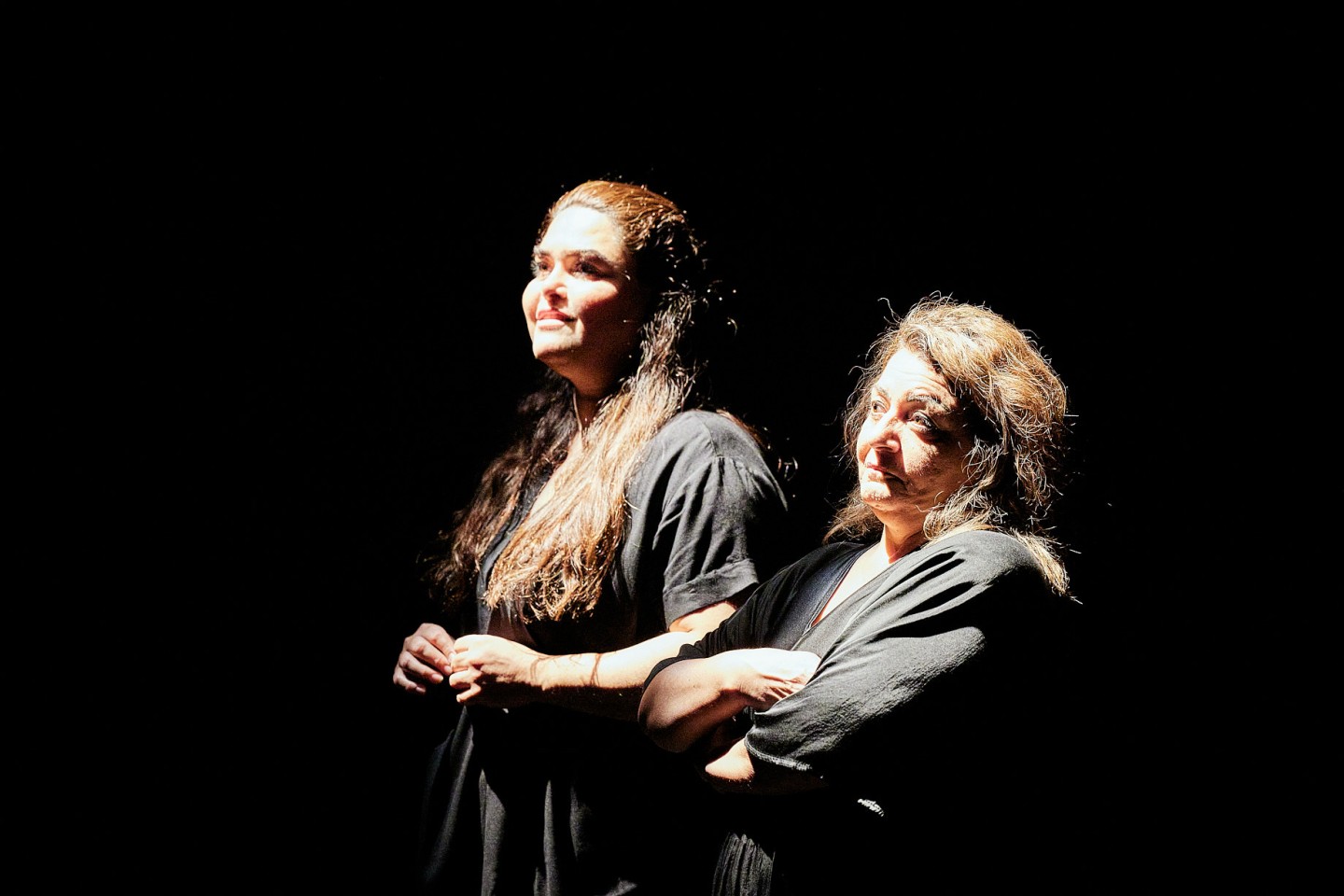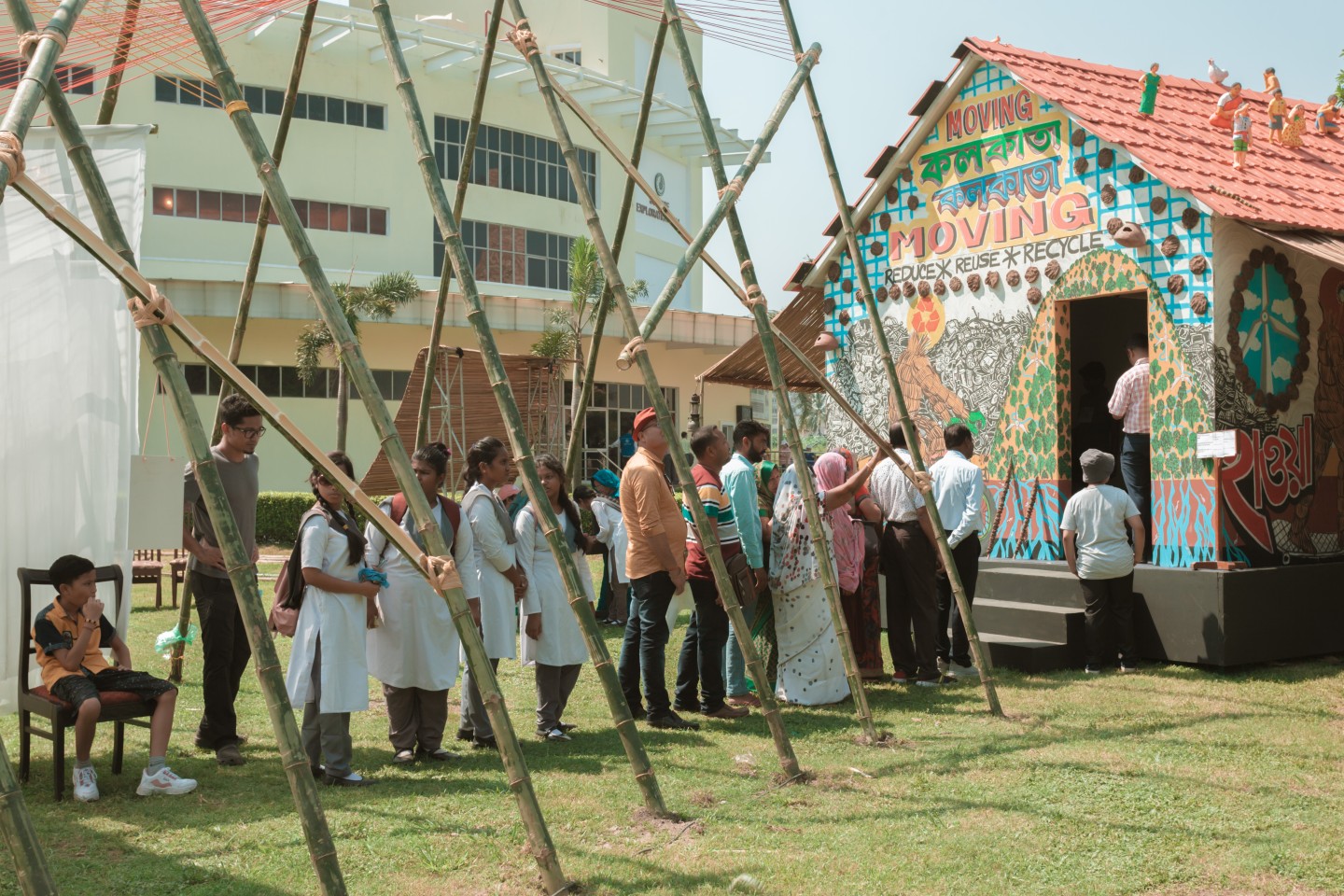




Gender equality and women empowerment in European Spaces of Culture
Working towards gender equality and ensuring women empowerment and diversity is an essential part of cultural relations work worldwide. Learn from some of our European Spaces of Culture pilot projects what it means to uphold the principles of gender equality through cultural initiatives and how they intersect with other themes of human rights and social justice.





European Spaces of Culture projects show a continued commitment to contributing to the UN Sustainable Development Goals through their objectives, activities and impact. Goal 5 (Gender Equality) has been strongly supported by many pilot projects. Together with other goals, such as Goal 11 (Sustainable Cities and Communities), Goal 8 (Decent Work And Economic Growth), Goal 13 (Climate Action) and more, the projects showed how strongly interlinked women's rights and gender equality are with environmental sustainability, freedom of expression, anti-racism and decoloniality.
Morocco, Algeria and Egypt: Shaeirat
The Shaeirat Project, as part of the newest edition of European Spaces of Culture projects, works on building a regional as well as international network in the MENA region, organising public bilingual poetry performances of Arab women poets performing their own works. The objective is to encourage and strengthen the exchange of poetry and cultural performance within Arabic speaking societies as well as in Europe. One of the driving forces is the translation of this variety of Arabic poetry into various languages to reach out to EU member states and their neighbourhood. As a result, Arabic poetry performances within the MENA region will contribute to the increase of translated Arabic poems to strengthen Arabic/European language bilingualism.
I feel seen and heard when my words are delivered in my own voice and language and with my physical presence on stage. I also find translation to be the highest form of art, as it gives an entirely new life to something that already has a life of its own, and Shaeirat project precisely does that; Adding life to life.
Carol Sansour, Poet and co manager of the Shaeirat Collective
South Africa: Right To Speak
Right to Speak addressed the needs of young poets in South Africa and beyond to showcase their work regionally and locally. By leveraging the power of digital, the project created spaces enabling young poets across oceans to speak, learn and grow together while supporting and building capacity for local organisations for sustained impact. Their focus on building strong relationships was aimed at sustaining connected, safe and inclusive physical and digital communities. Gender equality was a key topic, as the project ensured fair representation of women and women-led organisations with over 60% of the performers being women. In a digital campaign, international poets shared 6-word stories, celebrating International Women's Day 2022. With a special focus on National Women's Day in South Africa on 9 August, the project commemorated the history of this day that marks the Federation of South African Women (FSAW) rally against the Apartheid government in 1956.
At the 'Poetry Passport', Spoken Word artists from South Africa and Belgium met in a creative residency to collaborate on the themes of human rights, women’s rights (inlcuding gender equality and gender-based violence) and social justice. During their work for the residency, the four poets experienced an incident of racism. In response to this, the poets created a collective poem. Watch here how Belgian poet Miss Eli reflects on that moment.
The project launched the South African Poets Catalogue aimed at promoting a specially curated list of young and thriving South African Poets to international markets including Europe. Highlighting 20 emerging poets who are ready for international stages, the catalogue is aimed at small and large poetry and literature platforms around the world and provides an easy guide for programmers and promoters interested in booking and showcasing South African spoken word talent. Find the catalogue here!
India: Moving Kolkata – Kolkata Moving
One of the Sustainable Development Goals established by the United Nations is to make cities and human settlements inclusive, safe, resilient, and sustainable. Moving Kolkata – Kolkata Moving (MKKM) combined aspects of climate change, sustainability, heritage, and communities – in a project where artists and communities are invited to share and co-create solutions for the future of Kolkata’s sustainable development. Central to the project is the online MKKM platform moving-kolkata.com, gathering numerous sustainability insights, a forum, and testimonies of citizens dedicatedly working to make the city better and safer for its people and the environment: the Kolkata Movers. The Kolkata Movers are activists, artists, business leaders, academics, and many more. With the "sustainability insights", the platform sheds light onto the particular role of women as environemntal activists, conservationists and leaders in the mission to making Kolkata a safe and sustainable city. Read more in the article on the MKKM website here.
Peru+: AfrOeste
There are more than 130 million Afro-descendant people in Latin America. This community is one of the largest and most diverse in the continent and has experienced structural discrimination and segregation for centuries. Today, they still often face economic and social exclusion, and a lack of visibility even in the digital world. AfrOeste created a platform to promote the richness and diversity of cultural expressions of Afro-descendant people in Latin America, to boost the artistic production and exchange between creators, promote contemporary artistic creations, and in the long term, the development of a permanent institutional network centred around Afro-descendant people. Throughout the project, women have been at the front through significant leadership from women's organizations and actions aimed especially at improving their skills, at full and effective participation of women, equal opportunities in cultural economic and political life.
Multilateral cultural events were organised through a process of collaboration. For example, the Virtual Forum of Afro Creative Women in Peru offered meeting spaces for creative works of Afro-descendant women to be made visible and to contribute to the improvement of their social and working conditions, as spaces for dialogue and designing solutions. Participants debated and reflected on topics such as dramaturgy, research on the performing arts, cultural management, the links between art and activism, the position of Afro women in theatre and cinema, and the creation of content.
Another example the Kamba Sapukái Festival was hosted to become a permanent international multi-artistic meeting of black women and dissidents in Paraguay – an intercultural proposal that narrates the experiences of people of African descent through artistic expressions, orality, and collective knowledge.
Working together with AfrOeste has been a wonderful experience, in the past few months we’ve had the opportunity to know incredible women who work insatiably to make their stories shine. The reach of AfrOeste goes beyond an exchange and promotion network for the creative arts, it’s a learning network and connection between organizations, which allows us to establish alliances and connections that create synergies for change.
Amanda Arroyo, Fabrica de Historias, Costa Rica
